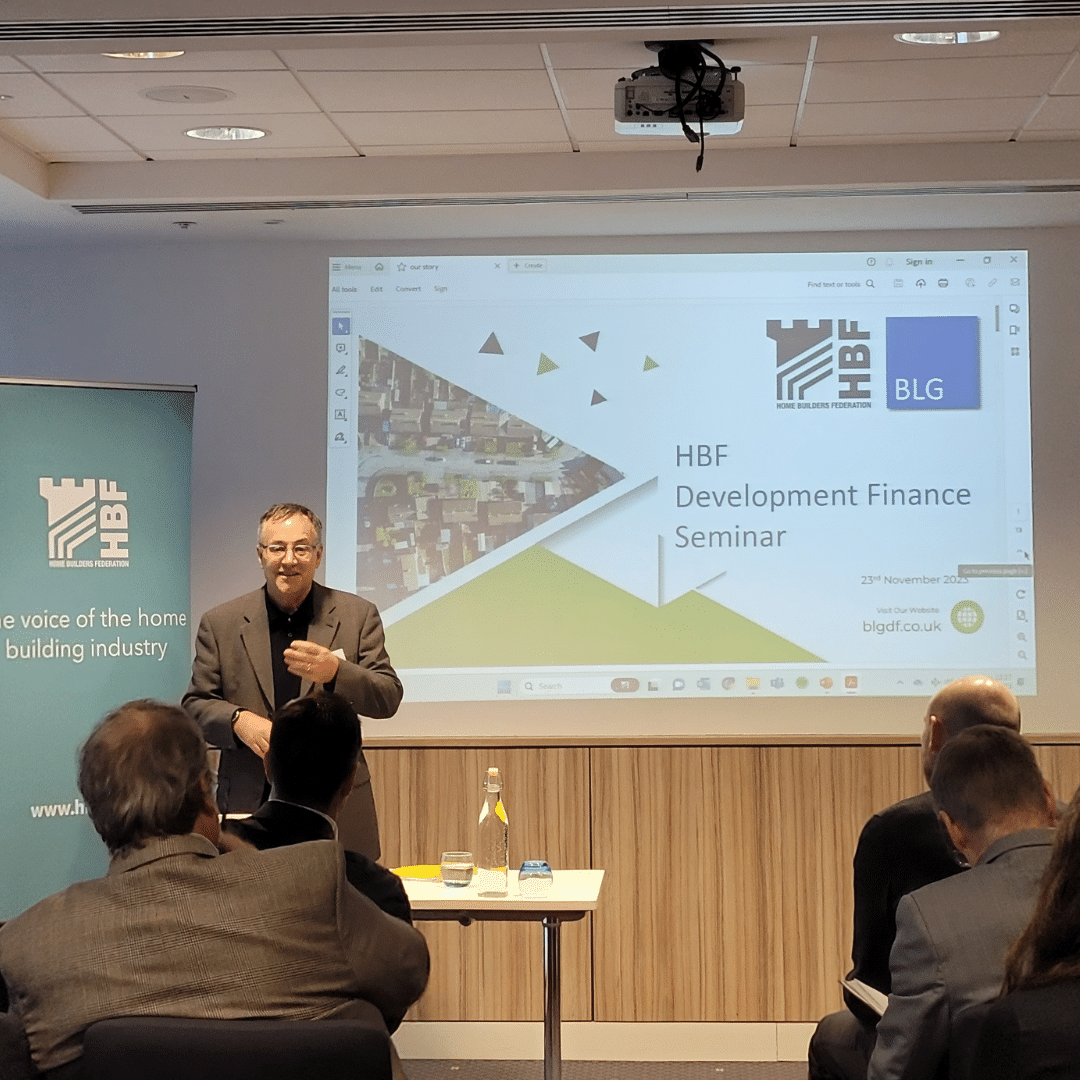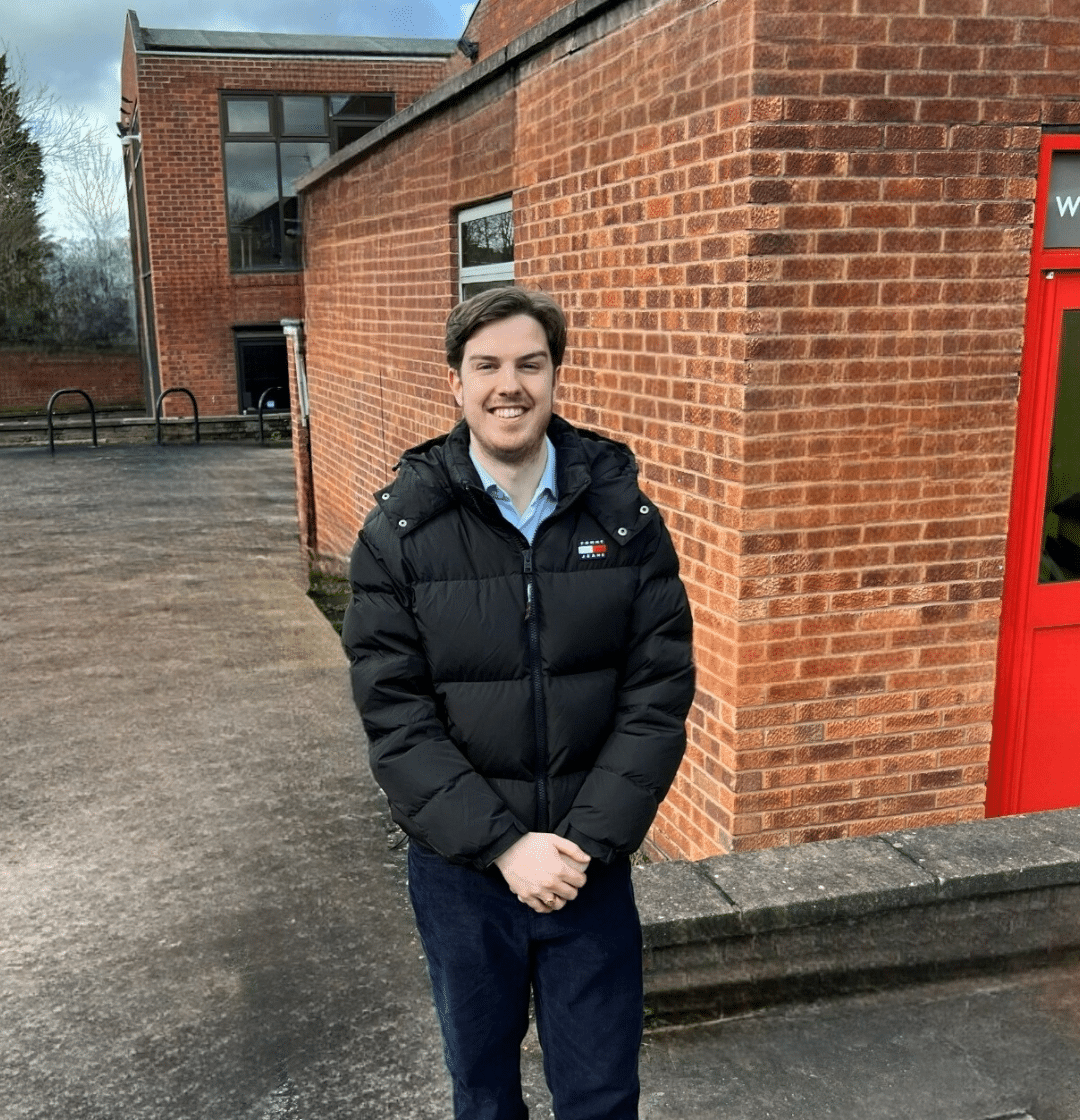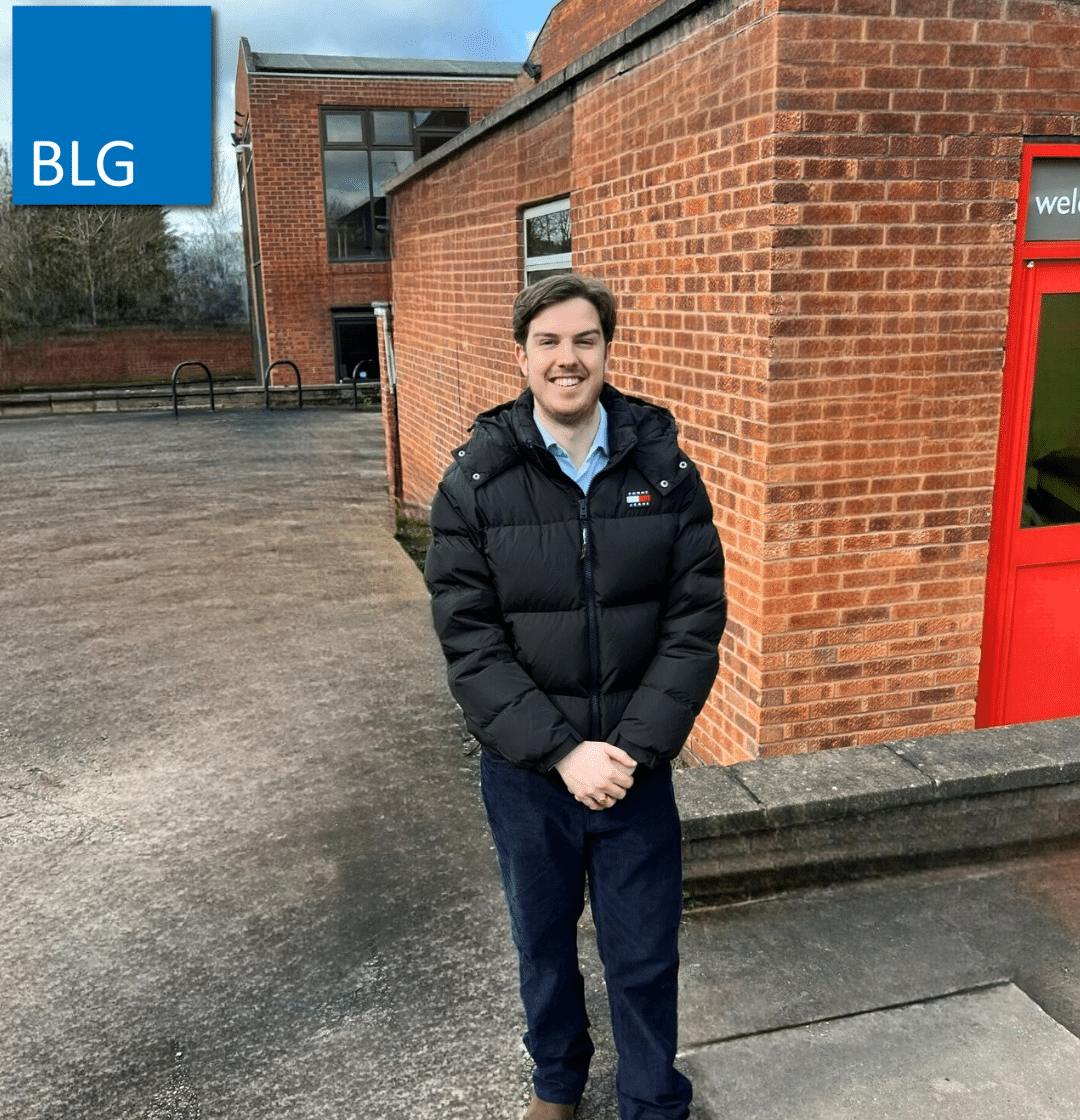
BLG Chairman Peter Wade Spoke at HBF Seminar
In the ever-evolving landscape of property development, adaptability and foresight are crucial elements for success. At the recent Home Builders Federation Finance Seminar in London, BLG’s Chairman, Peter Wade, delivered invaluable insights that resonated with developers during today’s market dynamics challenges.
His key message for the developers was that in times of market uncertainty, do you have your contingency plans in place for your project funding requirements before they are needed?
Developers should ask yourselves: Do you have only a single funder relationship and if yes, what is your back-up plan?

BLG Development Finance: Your Reliable Partner
- Consistent Lending Support
BLG understands that market conditions can be unpredictable, and the need for project funding doesn’t disappear during challenging times. With a commitment to supporting developers through both good and bad times, BLG stands as a steadfast financial partner. - Direct Communication with Decision-Makers
Developers can speak directly to the decision-makers, ensuring that concerns are addressed promptly and solutions are tailored to meet the unique needs of each project. - Stability through Strong Shareholders and Funding Sources
With robust shareholders and diversified funding sources, BLG provides a secure foundation for developers, mitigating risks associated with market fluctuations and economic uncertainties. - A History of Satisfied Clients
With a host of returning customers, BLG Development Finance has demonstrated its commitment to customer satisfaction and project success. This track record is a testament to the effectiveness of BLG’s support and the positive impact it has had on various development projects.
Contact Us For More Information
In a dynamic industry where adaptability is key, BLG offers not only financial solutions but a partnership built on reliability, transparency, and a shared commitment to success. As the property development landscape continues to evolve, having a well-thought-out contingency plan and a diversified approach to funding are essential for success. BLG Development Finance stands ready to be your trusted partner, offering stability, support, and a proven track record in navigating the uncertainties of the market.
For further information or to explore how BLG can support your project, reach out to us at 01483 949494 or via email at [email protected] for more information on how we can tailor our services to meet your specific needs. The BLG team is committed to helping developers build a resilient and prosperous future within the dynamic landscape of property development.










